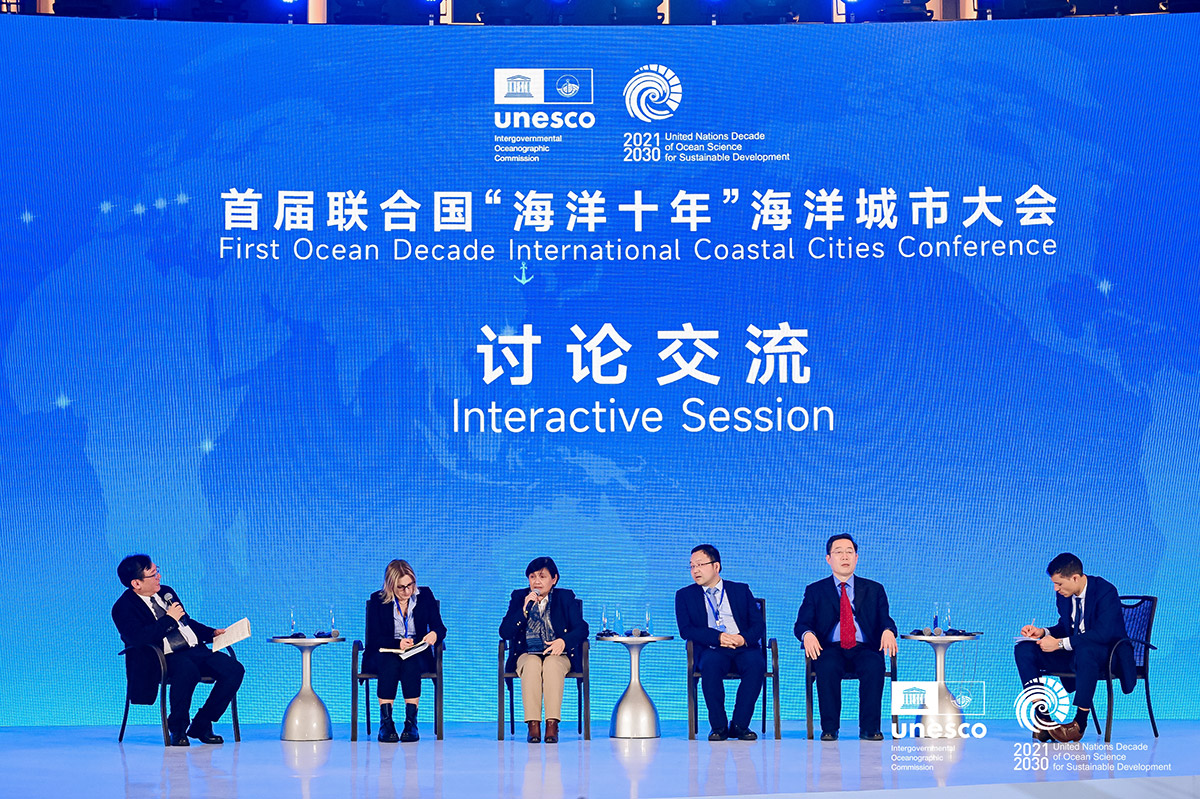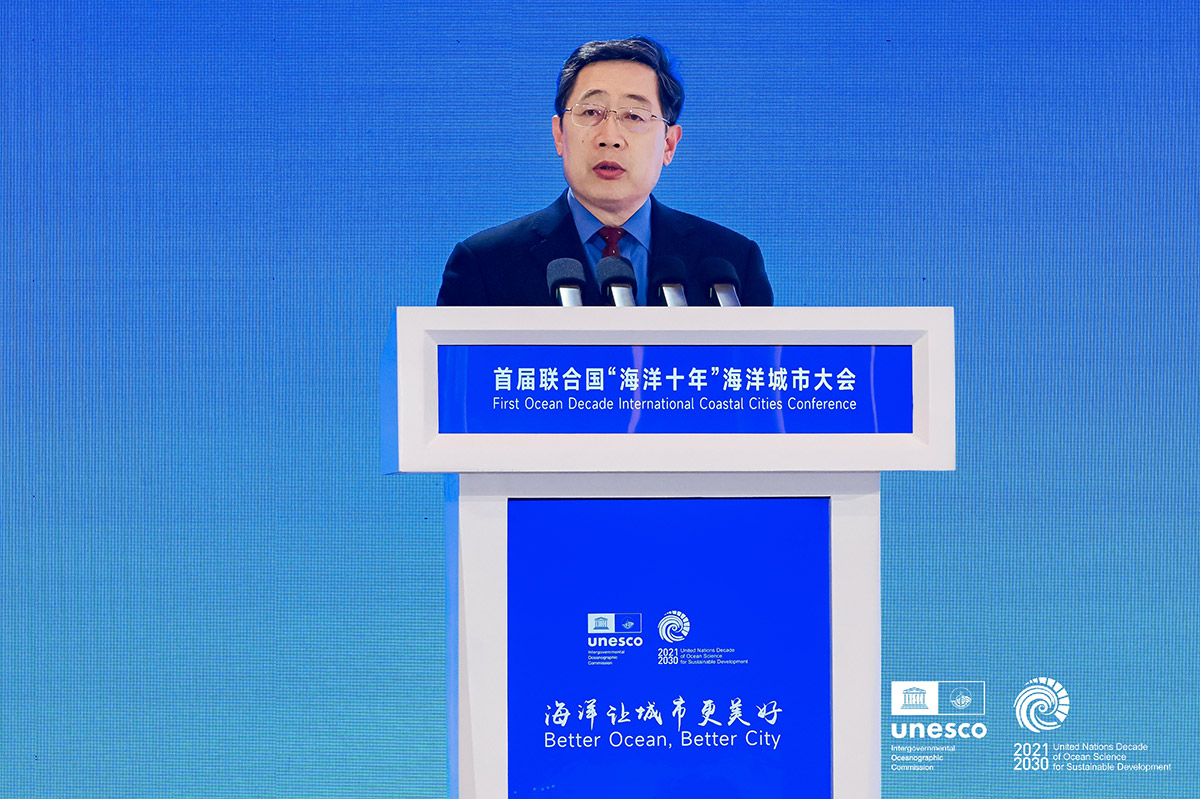On February 26, the inaugural United Nations "Ocean Science for Sustainable Development Decade" (referred to as the Ocean Decade) Coastal Cities Conference opened grandly in Qingdao, attracting nearly 400 participants from 29 countries and regions, including government officials, representatives of international organizations, experts from research institutions, and maritime industry representatives. Together, they explored new pathways for empowering urban sustainable development through the ocean. Dr. Qiao Fangli, Director of DCC-OCC, was invited to deliver a keynote report. From the perspective of "developing science-based high-quality public service products to support sustainable development of coastal cities," he proposed the Coastal Ocean Action for Sustainability Toolkit (COAST), based on advanced research achievements in marine forecasting. The toolkit garnered significant attention and recognition from domestic and international attendees. Several distinguished guests praised its critical contribution to the Ocean Decade initiative. The toolkit was incorporated into the conference’s outcome document, the Qingdao Declaration, jointly endorsed by UNESCO/IOC and the Qingdao Municipal Government, showcasing China’s scientific contributions to global ocean governance and sustainable coastal development.
In the opening speech, Zeng Zanrong, Member of the Standing Committee of the Shandong Provincial Committee and Secretary of the Qingdao Municipal Committee, acknowledged the significant contributions of the "Ocean and Climate Seamless Forecasting System (OSF)" Grand Science Program, initiated by our institute, in serving the Ocean Decade and enhancing marine science and technology innovation in Shandong Province. Ashok Adiceam, Deputy Special Envoy for the UN Ocean Conference under the French Presidency, stated that the Coastal Ocean Action for Sustainability Toolkit (COAST) is crucial for sustainable development. Julien Barbière, Head of Marine Policy and Regional Coordination at UNESCO’s Intergovernmental Oceanographic Commission (IOC) and Global Coordinator of the Ocean Decade, highly commended the proactive role of the DCC-OCC in coordinating and advancing the implementation of the Ocean Decade. Vladimir Ryabinin, former Executive Secretary of IOC, emphasized that the toolkit will enhance collaborative governance among coastal cities in extreme ocean disaster early warning, ecological conservation, and sustainable development. He urged more cities and institutions to adopt this scientific solution to strengthen global climate resilience. Sébastien Scourtika, Special Advisor to the Mayor of Nice, France, invited DCC-OCC to co-host a special event at the Third UN Ocean Conference to launch and promote the toolkit, expressing strong hopes for Nice to become one of the first cities to implement COAST.
As global climate change intensifies, coastal cities face mounting challenges such as sea-level rise, extreme weather events, and marine pollution. The ocean, however, remains both a driver of urban prosperity and a cornerstone of sustainable development. Addressing the urgent need to enhance coastal resilience, optimize marine resource management, and promote ecological recovery and blue economy growth has become a critical global governance priority. To meet these challenges, the DCC-OCC, led by our institute, collaborated with domestic and international institutions to develop the COAST Toolkit. This toolkit provides systematic, technology-driven solutions across six modules: marine and climate disaster risk reduction, maritime safety, coastal ecosystem health, integrated coastal zone management, sustainable blue economy development, and ocean literacy. With 24 actionable functions, COAST aims to foster a new paradigm of harmony between humanity and the ocean.

Dr. Qiao Fangli participating in interactive discussions on global collaboration.

Dr. Qiao Fangli presenting the COAST framework at the plenary session.